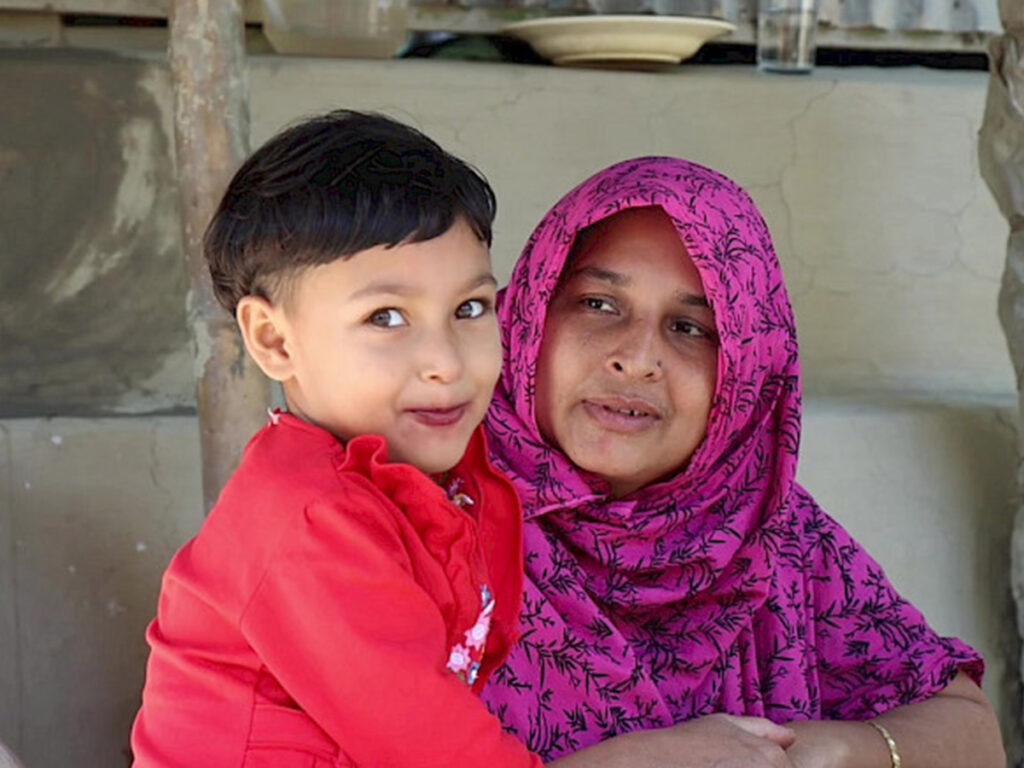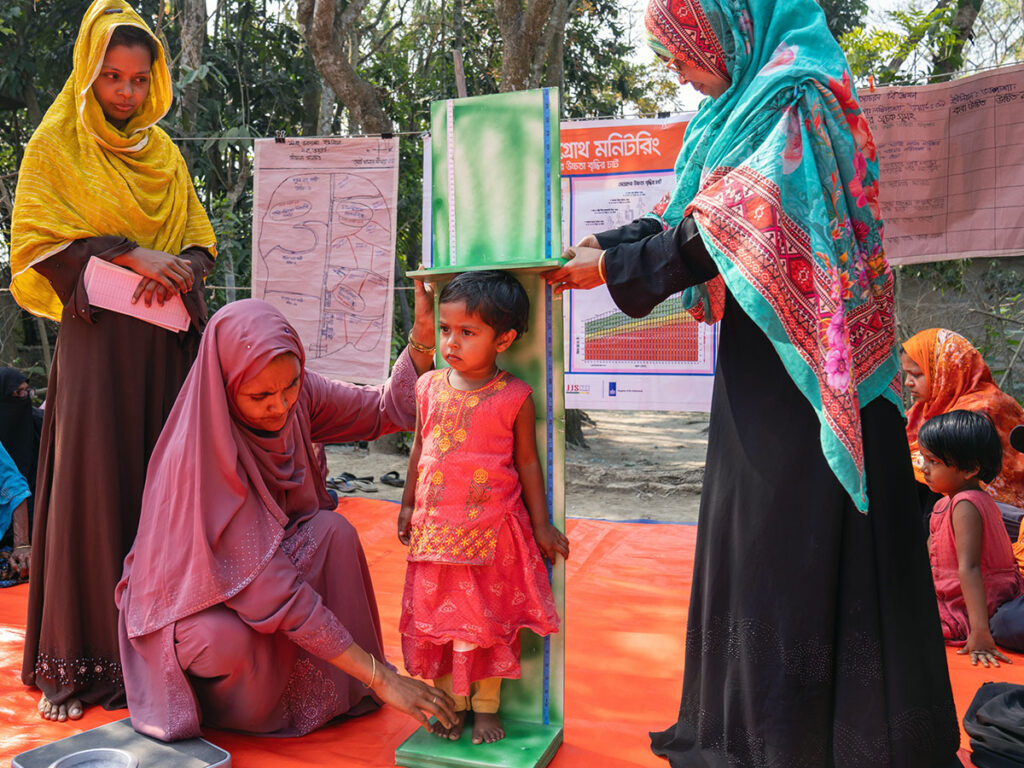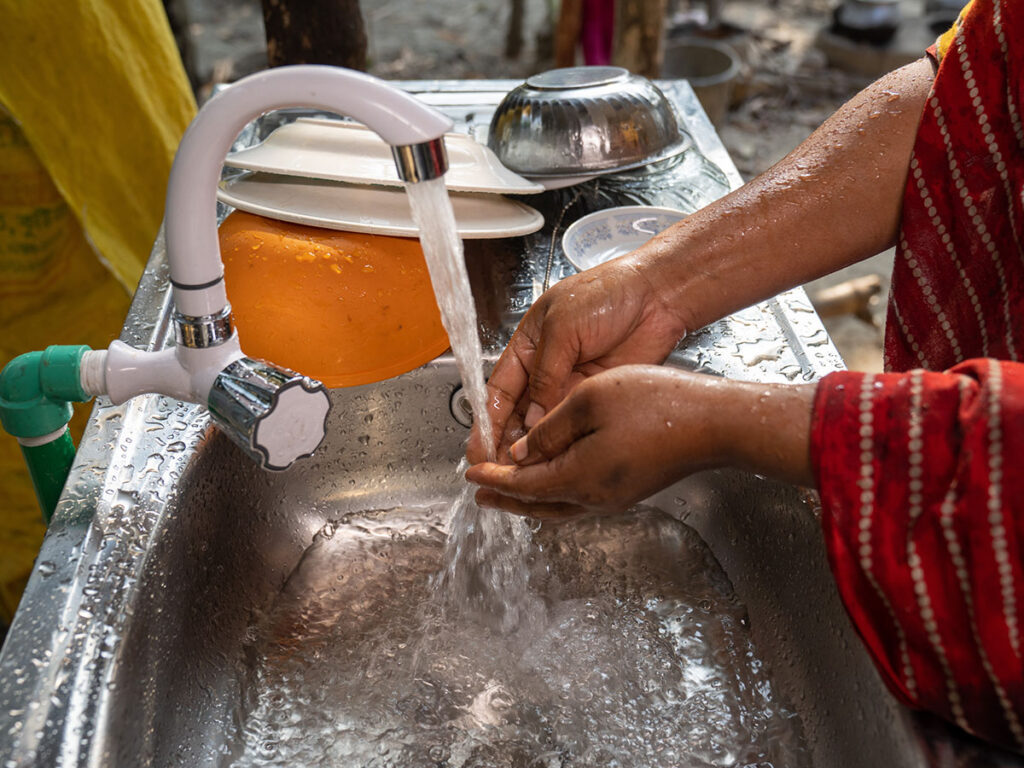Bushra’s personal story
Bushra’s personal story
We’ve supported the Max Tapwater project to realise 80 water networks in different locations in Bangladesh since 2022. Aside from direct access to clean water and the creation of jobs, the project also supports safe sanitation and hygiene practices, especially for families and young children. In this update, you’ll learn about Bushra, who’s profited immensely from this part of the project.

Stunted growth
If you were to meet Bushra, a healthy five-year-old girl, today, you probably would not expect that she had faced health challenges in her earlier years. For a long time, residents from Bushra’s village relied on unsafe drinking water. Private and secure latrines were rare and regular handwashing with soap was not a standard practice.
As a result, waterborne diseases such as diarrhoea continued to negatively affect the health of young children, including Bushra, who often fell ill during the early years of her life. At the age of 2, her weight and height were measured for the first time during one of the courtyard sessions organised as part of the Max Tapwater project. It was then that her parents learned that she was too short for her age – a condition known as stunting.
Safe hygiene practices
Upon discovering that Bushra was stunted, her mother Mahinur began attending the courtyard sessions regularly. There, essential WASH and nutrition practices were promoted at the same time, helping Mahinur identify the underlying causes of her daughter’s undernutrition.
She received information on increasing dietary diversity, safe disposal of faeces, regular handwashing and safe food preparation and storage. Plus, where possible, parents and caregivers exchange information through peer-to-peer learning. The diet of a healthy child living in the same community served as a model for improving diets among undernourished children. This shows that the ingredients of a healthy diet can be sourced from best practices and resources that are locally available

“
Now Bushra practices handwashing and hygiene regularly and she is studying attentively. It really made a difference in her life.
Mahinur, Bushra’s mother
”

A big difference
Inspired by the training and information, Mahinur set up basic handwashing basins in both her kitchen and her dining area – constructed and installed by local entrepreneurs using locally sourced materials. The entire family now washes their hands with water and soap at least five times a day.
Bushra’s growth continued to be regularly measured during community growth monitoring sessions, where Mahinur also received counselling tailored to her daughter’s growth trend. By 3 years of age, Bushra was no longer stunted. Her mother proudly shares: “Now Bushra practices handwashing and hygiene regularly and she is studying attentively. It really made a difference in her life.”
Max Tap Water
In Bangladesh, 73 million people still do not have access to water at home. As a result, especially women and girls spend at least 2 hours a day to fetch water. That water is often polluted with various diseases and malnutrition as a result.
Our mission in this project is therefore: easy, safe and affordable water at home. We will do this in an enterprising way by constructing mini water networks that will pay for themselves. This way we get a flywheel effect!
You might want to read these updates too:
Update: 85 of 130 water networks completed
Discover the latest progress of our Max Tapwater project in Bangladesh.
Read moreTwenty new water grids in Bangladesh
2023 was a productive year for the Max Tapwater project in Bangladesh. The number of water grids has doubled, bringing many more advantages than just clean water from the tap.
Read more